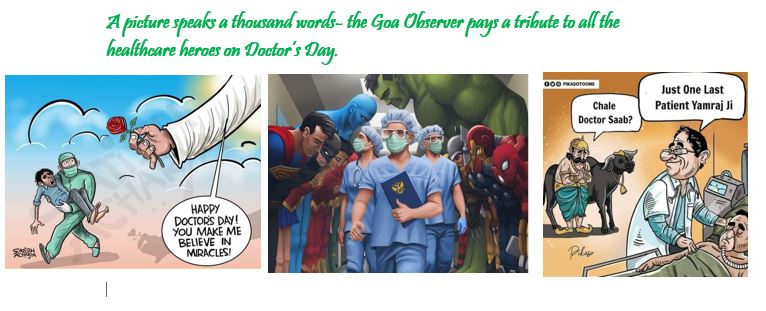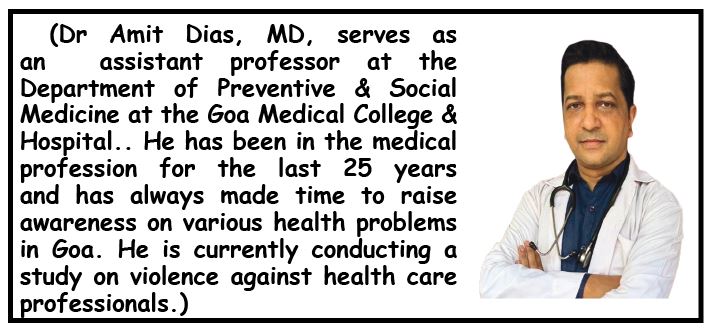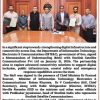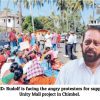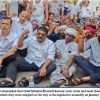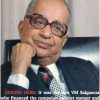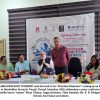Goa is abuzz with excitement as vintage bike and car owners, users, collectors and fans are decking […]
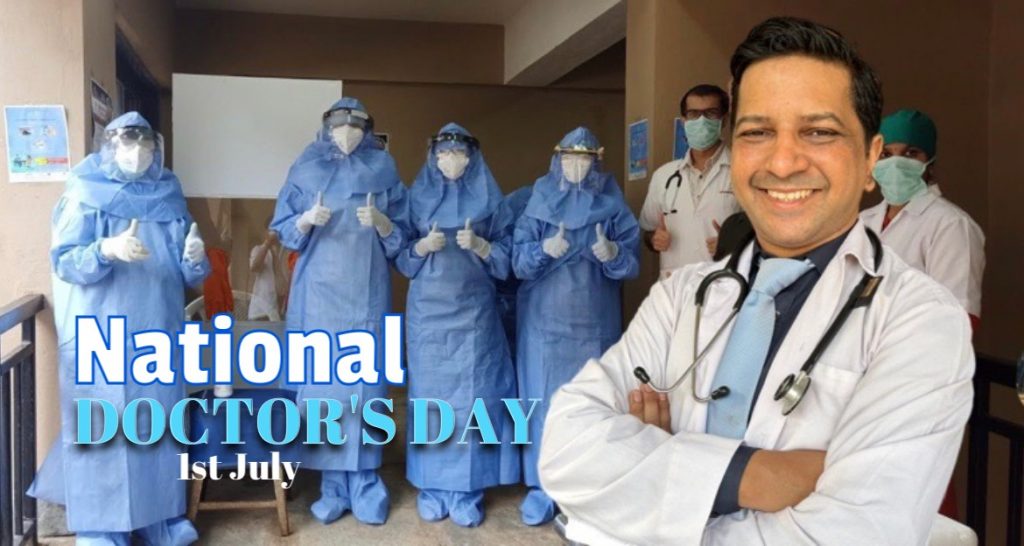
BEHIND THE STETHOSCOPE: Sleepless in Scrubs!
June 28- July 04, 2025, MIND & BODY, HEART & SOUL June 27, 2025By Dr Amit Dias on the occasion of National Doctor’s Day.
Doctor’s Day is when the society pauses for a moment, to celebrate the white-coated warriors who tirelessly diagnose, dissect and deliver hope in the face of illness. For today, let’s invert the lens. Let’s focus not on their prescriptions—but their pain, not just their smiles—but the stress behind them.
As a medical doctor and academic myself, I’ve often been asked: Do doctors take care of themselves? The truthful answer —straight from the heart— is: Not very well.
According to a study by the Indian Medical Association, while the average Indian lives to about 69–72 years, a doctor’s life expectancy is tragically lower: just 55–59 years. That’s a decade-and-a- half sacrificed in service to others. Doctors with all their medical knowledge should enjoy a healthy lifestyle and live longer, the ironic truth is that it is not so.
Why the shorter shelf-life?
JUST like our medicines, doctors seem to have a short expiry date. Imagine clocking 72-hour shifts without proper food, sleep, or sunlight. Add a steady dose of workplace stress, impossible expectations, guilt that you are not doing enough for your family, dangerous exposures — from sharp injuries in surgery to infectious diseases like HIV, tuberculosis and most recently, Nipha virus, COVID-19 during the raging pandemic. It’s not as romantic as in Grey’s Anatomy.
Studies have shown that surgeons and anesthetists reportedly excrete 150 mg of cortisol daily — a biological alarm for burnout. But our stress isn’t just physical. It’s existential. It’s administrative overload, it’s emotional fatigue, and yes, what is often unspoken, it’s bullying at the workplace.
The Unspoken Pandemic: Workplace Violence & Bullying
LET’S address the elephant in the emergency room: violence against doctors is real, rising and rampant. Seventy-five percent of Indian doctors have faced violence at work — verbal, emotional and disturbingly physical. You’d think that saving lives would come with a little gratitude — not a broken jaw or smashed monitor and broken windows. Doctors have been stabbed and fatally injured while at work. It leads to a lot of media headlines for a short time and life goes back to the routine chair.
What hurts more is the quiet, corrosive bullying that brews within the medical fraternity. Senior doctors, instead of mentoring, often mutter: “I did 72-hour duties in my day, so should you.” This toxic cycle — more tradition than training — is not grit; it’s generational trauma masquerading as discipline. Professional ethics are often sacrificed at the altar of ego. The Hippocratic Oath needs a clause on internal empathy.
I DON’T have to go far, I have experienced it first hand, when my wife fell ill with COVID, in May 2023 — I was denied one day casual leave to care for her! That moment hit home: If doctors can’t show basic compassion to one another, what hope do patients have?
When my mother had cancer and had to be taken to TATA Hospital, Mumbai for a follow-up, I was denied three days earned leave to do so, despite making all alternate arrangements for my work. It was only when the government intervened that I was granted leave. There is an absolute lack of empathetic leadership which is a critical skill needed to work in a team. You may be a good clinician, but if you cannot work in a team, it will make life difficult.
Sleepless in Scrubs:
SLEEP is no longer a guarantee for many doctors. Studies have shown that physicians, particularly those in emergency medicine, surgery, and residency training, frequently get less than six hours of sleep per night—well below the recommended seven-nine hours for adults. The disruption stems from long working hours, night shifts, irregular rotations, emotional exhaustion, and the constant cognitive alertness required in high-stakes clinical decision-making.
Chronic sleep deprivation not only impairs judgment and memory but significantly increases the risk of burnout, cardiovascular disease, insulin resistance and even medical errors. In fact, research from the Journal of the American Medical Association (JAMA) reveals that doctors with disrupted sleep schedules are twice as likely to report fatigue-related errors in patient care.
The real tragedy? Even after their shift ends, many doctors remain too wired to rest, caught in a cycle where the mind races, but the body begs for pause. This Doctor’s Day we are launching a new study on sleep pattern in health care professionals to document the problem and address the issue.
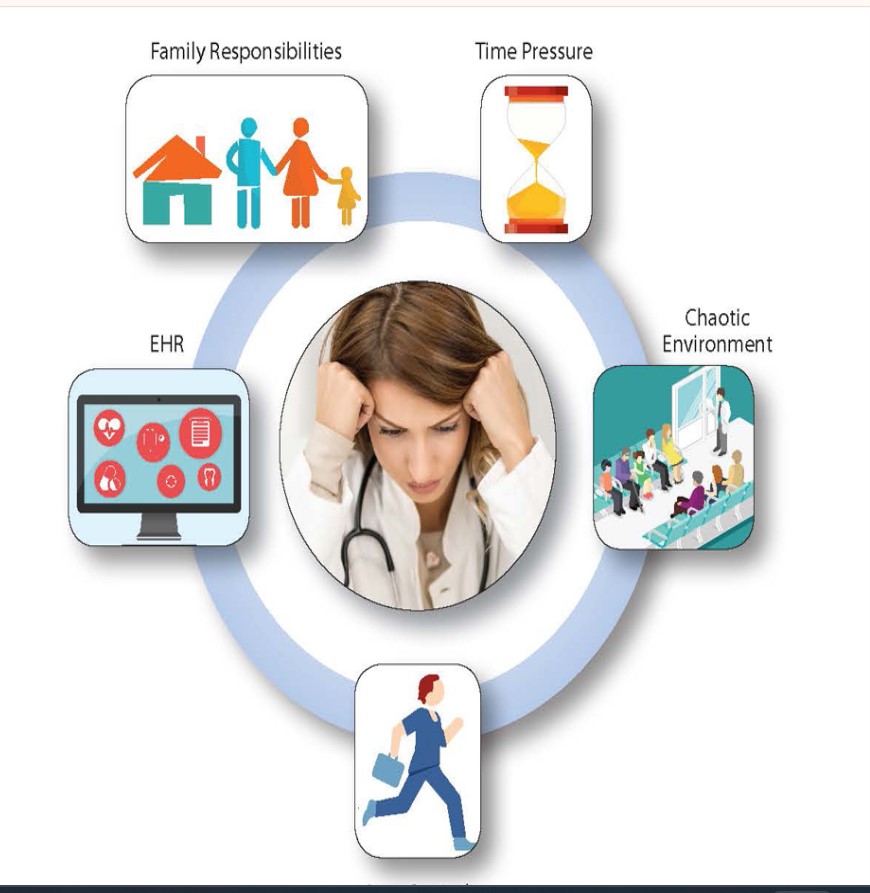
The Doctor is Not a Machine
DOCTORS are not divine, they’re human. They suffer depression, anxiety, insomnia. In a study I conducted at the Goa Medical College & Hospital, 16.5% of medical students already showed signs of depression. Among working doctors, 82% reported being stressed, 34.5% had hypertension, 18.5% had diabetes and more than half feared violence at the workplace.
Even more alarming: doctors facing burnout are 63% more likely to make major medical errors. This isn’t just a doctor’s dilemma — it’s a public health risk.
A Call for Change—Stat!
What’s the cure? Empathy —administered in large doses.
Within the fraternity: Let’s stop measuring worth by suffering. Support junior colleagues. Create safe spaces. Break the silence around mental health. Improve leadership skills and educate doctors on professional conduct and soft skills like breaking bad news.
At the policy level: Invest in protective laws, adequate leave, and structured mentorship.
For society: Stop seeing doctors as infallible beings or easy scapegoats. Recognize that behind every prescription is a person with struggles, families, and limits.
We need regular team-building retreats and yes, sleep. Nurses get shifts — why don’t doctors?
As we remember Dr BC Roy — India’s legendary physician whose birth and death both occurred on July 1 — we must honor his legacy by treating doctors with the care they desperately need.
Final Prescription
TO all my fellow physicians: be kind to yourself. Rediscover hobbies, reconnect with your family, and most importantly, don’t wear your exhaustion like a badge of honor.
The medical profession is a calling — but even the most dedicated need to pause, heal, and breathe. A happy doctor isn’t a luxury; it’s the backbone of a healthy society.
This Doctor’s Day, let’s remember: It is not just about saving lives — but also about preserving the life of the savior.
